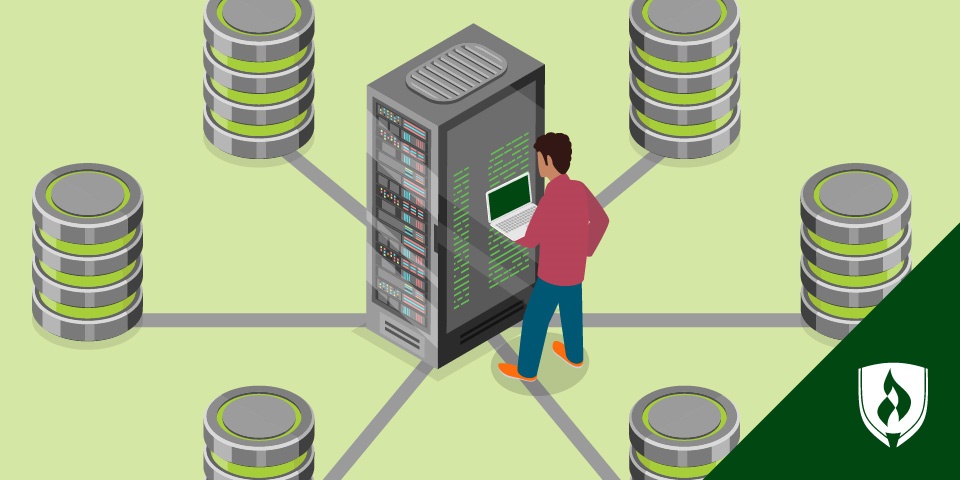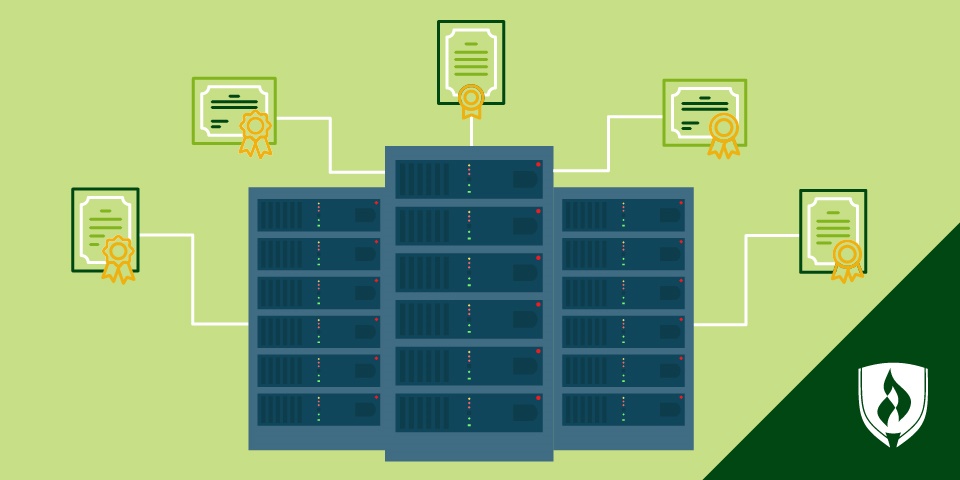Software Careers: 6 Critical Roles You Should Know
By Brianna Flavin on 06/06/2022

Working in a software-related role may sound like an ideal career direction. Of course, a goal of “working in software” only slightly narrows down your options. Similar to deciding to work in marketing or healthcare, there are still a lot of options and pathways to making it happen.
An interest in software is only the beginning. Next comes analyzing your options to see what kind of software career would best fit the bill. To help you get a better grasp on some of the software-centric careers you could apply your tech talent to, we’ll explore several common options. Whether they’re laser focused on the day-to-day programming and development work or more aligned with the oversight and management of the project, there are several options that could be a fit for you. Scan some of these critical roles to see where your interests most align.
6 software careers aspiring tech pros should know
1. Software developer
Software developers design and create software to meet a huge variety of user needs. They maintain existing software as well, recommending necessary updates for current systems. In the process of developing software, they typically communicate with programmers, other team members and prospective end-users to make sure the software will meet the right needs and requirements.
There’s plenty of variety within this role, as well. There are different types of software developers out there. Since so many businesses need software solutions, even the same general role could look very different depending on the employer. For more specifics, check out “What Does a Software Developer Do? A Deep Dive into the Career.”
2. Software engineer
Software engineers design and guide software through the entire development lifecycle. They analyze elements pertaining to both software and hardware, document the development process and program computer instructions. Like software developers, they also ensure the project will match user needs and continue to maintain and update systems they oversee.
As you can see, the job of a software engineer has some similarities to that of a software developer. For a little more clarity between the roles, check out “Software Developer vs. Software Engineer: What’s The Difference?”
3. IT project manager
IT project managers oversee projects to ensure that software develops on the right timeline, meets the right needs, passes security and performance tests, and satisfies the prospective users. They need varying levels of technical expertise depending on their employer and the projects they work on—but pretty much all IT project managers need to excel at communication and organization.
These professionals are the connection point for everyone working on the project. If a company is creating a new software application, for example, the project manager will meet with the developers, programmers and engineers who will build the application. Depending on the project, they may also meet with executives funding the project, the clients who will use the software, quality assurance professionals who will test the software and potentially other stakeholders, such as marketing teams, customer service representatives and more.
If this software career interests you, check out “What Is an IT Project Manager? Breaking Down This Unique Tech Career.”
4. Scrum master
A scrum master is kind of like the IT project manager for teams that use Agile development. These professionals hold daily meetings and checkpoints, helping their team operate at maximum speed and efficiency. They troubleshoot issues in the software development cycle and seek out ways to automate and improve future projects as they go.
If working in the Agile style appeals to you, check out “What Is DevOps? A Beginner’s Guide to This Fast-Growing Approach.”
5. Quality assurance analyst (QA analyst) and testers
Have you ever tried to use an app or system riddled with bugs and problems? That’s obviously not great for customers and the product’s reputation—and organizations strive to keep them to a minimum. Software quality assurance analysts and testers are the people tasked with doing just that. They work with software developers and engineers to test software, either manually or through the use of automated systems, to identify and fix problems before they reach the user.
QA analysts are often involved in software development the moment the project begins. They employ many different methods throughout the lifecycle to keep quality high. Check out “What Does a QA Analyst Do? Testing Out This Tech Career” for an in-depth look at their work.
6. Information security analyst
Information security analysts and cybersecurity professionals can also play a critical role in the development of software. Mobile applications often store critical personal information and can be a common target for hackers and other bad actors. These professionals analyze software for potential vulnerabilities, relay potential fixes and consult with developers and other stakeholders to determine the best course of action. Often, this requires a balancing act—not every development timeline is going to allow for the application to become a virtual Fort Knox, so decisions need to be made on how to safeguard applications in a cost-effective manner.
This software career requires constant vigilance and learning since methods of cyberattack shift rapidly. For more detail on this exciting role, see “How to Become an Information Security Analyst: Cracking the Code.”
The software career that matches your fascination
If you like working in software development and hope to land a software career in the future, earning a Computer Science degree can be the perfect starting point for making it happen. But an education isn’t the only thing you’ll need to get started. Our article “Getting Started in Software Development: 6 Tips for Success” offers helpful advice from established tech pros.




